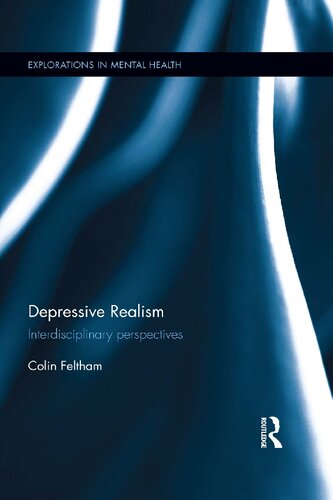

Most ebook files are in PDF format, so you can easily read them using various software such as Foxit Reader or directly on the Google Chrome browser.
Some ebook files are released by publishers in other formats such as .awz, .mobi, .epub, .fb2, etc. You may need to install specific software to read these formats on mobile/PC, such as Calibre.
Please read the tutorial at this link: https://ebookbell.com/faq
We offer FREE conversion to the popular formats you request; however, this may take some time. Therefore, right after payment, please email us, and we will try to provide the service as quickly as possible.
For some exceptional file formats or broken links (if any), please refrain from opening any disputes. Instead, email us first, and we will try to assist within a maximum of 6 hours.
EbookBell Team

0.0
0 reviewsDepressive Realism argues that people with mild-to-moderate depression have a more accurate perception of reality than non-depressives. Depressive realism is a worldview of human existence that is essentially negative, and which challenges assumptions about the value of life and the institutions claiming to answer life’s problems. Drawing from central observations from various disciplines, this book argues that a radical honesty about human suffering might initiate wholly new ways of thinking, in everyday life and in clinical practice for mental health, as well as in academia.
Divided into sections that reflect depressive realism as a worldview spanning all academic disciplines, chapters provide examples from psychology, psychotherapy, philosophy and more to suggest ways in which depressive realism can critique each discipline and academia overall. This book challenges the tacit hegemony of contemporary positive thinking, as well as the standard assumption in cognitive behavioural therapy that depressed individuals must have cognitive distortions. It also appeals to the utility of depressive realism for its insights, its pursuit of truth, as well its emphasis on the importance of learning from negativity and failure. Arguments against depressive realism are also explored.
This book makes an important contribution to our understanding of depressive realism within an interdisciplinary context. It will be of key interest to academics, researchers and postgraduates in the fields of psychology, mental health, psychotherapy, history and philosophy. It will also be of great interest to psychologists, psychotherapists and counsellors.